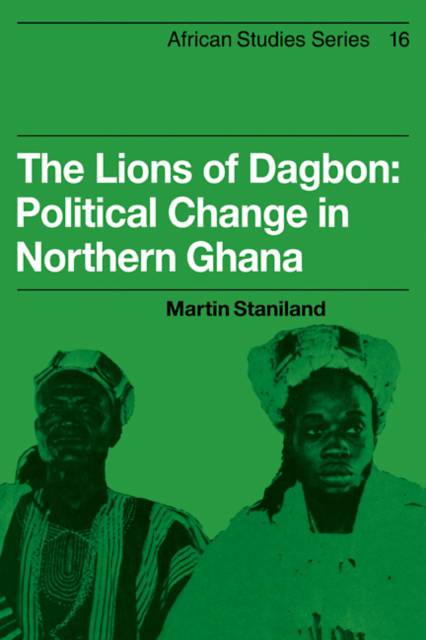
- Afhalen na 1 uur in een winkel met voorraad
- Gratis thuislevering in België vanaf € 30
- Ruim aanbod met 7 miljoen producten
- Afhalen na 1 uur in een winkel met voorraad
- Gratis thuislevering in België vanaf € 30
- Ruim aanbod met 7 miljoen producten
Zoeken
Omschrijving
The political conflict that has taken the most violent form and proved costliest in human lives in Ghana in the last half century has been a chieftaincy dispute in the northern kingdom of Dagomba, known as the Yendi skin dispute. The major loss of life took puce in 1969 but the dispute has continued to trouble Ghanaian politics and has affected the careers of national leaders under both civilian and military regimes. It is one of the most complex, explosive and intractable disputes in a country noted for conflicts over chieftaincy. Mr Staniland examines the political history of Dagomba, one of the most important pre-colonial states in what is now Ghana, from its partition between the British and the Germans in 1899. He analyses the attitudes and policies of successive governments towards chieftaincy and `traditionalism', and the effects which outside control has had on dynastic politics.
Specificaties
Betrokkenen
- Auteur(s):
- Uitgeverij:
Inhoud
- Aantal bladzijden:
- 256
- Taal:
- Engels
- Reeks:
- Reeksnummer:
- nr. 16
Eigenschappen
- Productcode (EAN):
- 9780521101431
- Verschijningsdatum:
- 13/11/2008
- Uitvoering:
- Paperback
- Formaat:
- Trade paperback (VS)
- Afmetingen:
- 152 mm x 229 mm
- Gewicht:
- 381 g

Alleen bij Standaard Boekhandel
+ 138 punten op je klantenkaart van Standaard Boekhandel
Beoordelingen
We publiceren alleen reviews die voldoen aan de voorwaarden voor reviews. Bekijk onze voorwaarden voor reviews.








